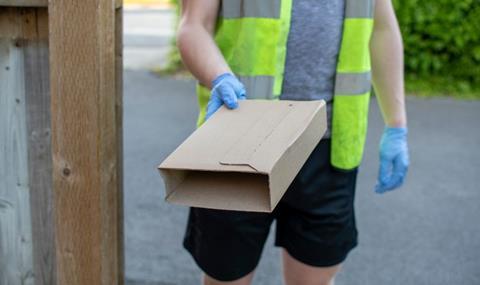
For hauliers who have been obliged to suspend or severely cut back on their operations because of the Covid-19 epidemic, a return to work probably cannot come soon enough. But as Jonathon Backhouse of Backhouse Jones solicitors told motortransport.co.uk, operators need to be aware of possible pitfalls in resuming their operations.
All employers, regardless of business are obliged by law to carry out a Covid-19 risk assessment to establish the level of risk to their workforce and visitors to their premises, including vehicles.
They must then put in place suitable measures to reduce the risk. These might include hand washing/sanitising facilities, disinfectant procedures, social distancing measures, possibly including changed break time arrangements and personal protective equipment (PPE) such as face masks or other protective clothing.
This will probably be easier for large operators, employing health and safety personnel, but smaller operators will probably benefit from guidance about what they need to do. This is available from sources including the Health and Safety Executive (HSE) and law firms such as Backhouse Jones.
Director Jonathon Backhouse sees employees splitting into two types; those who will want to return to work and those who have become content on furlough and are therefore more reluctant to return: “That group will look for an excuse not to work," he suggested. “The obvious excuse is, 'I don’t feel you’re taking enough safety measures.' ”
Employers must consult with their employees: “Employee consultation is key to a satisfactory risk assessment process”, he added. “Apart from large companies, most employers ignore or are unaware of that obligation.”
The HSE provides a hotline for employees to call if they do not think their employer is doing all that they should and Backhouse said that calls will trigger a Health and Safety investigation. Employers need to take risk assessment seriously and put the necessary measures in place.
Operators cannot predict how quickly business will recover and it may be that operations will begin with a partial return of the workforce, with further staged returns as business picks up. Employers cannot breach anti-discrimination legislation by, for instance, bringing back their youngest drivers first.
Backhouse believes the best way forward may be to ask for volunteers to return first. If that doesn’t encourage enough of your workforce to return, employers will need to find a fair method to select others. “This might be on the nature of the work, or on skill set”, he said.
Alternatively, you might give those with medical conditions, family commitments or vulnerable people at home the option to remain at home for the time being if enough others are willing to return, or rotate the furlough scheme around the workforce.
“Definitely get legal advice if you are getting challenged on the fairness of the selection process”, Backhouse advised. “Don’t just brave through it.”
The contraction in business that many are facing and uncertainty about the future means that businesses have already announced redundancies and it is likely that more will follow. The protocols surrounding redundancy procedures mean that companies that feel they have to take such steps will need legal advice, as the factors that affect the process will be specific to each operator. “Don’t wing redundancy”, advised Backhouse.
He also highlighted changes in employment law that will have an impact. As of 6 April 2020, one of these is that from day one of employment, they are entitled to a contract of employment. This contract must also now contain additional items and detail to those that would be expected historically.
Many companies still employ staff without a contract: “Any employment claim brought by a member of staff can automatically be increased by up to four weeks wages if they do not have a contract of employment”, he said, adding that employers who do not have contracts with their employees should issue them before bringing staff back to work: “Providing you have issued them, the claim stops, even though you should have issued them in April at the very latest. Law firms including Backhouse Jones can help to draw up contracts."
The last issue that Backhouse highlighted is the obligation on employers to enforce the safety protocols arising from the risk assessments they have carried out. For example if you state that in the case of drivers being transported by car to collect a vehicle, the driver being transported sits in the back of the car, while driver and passenger possibly wear face masks and the windows are open – all in line with available guidance, it is up to the operator to make sure that happens.
“You can’t have the rule and then not enforce it”, Backhouse explained. The obligation is on the employer, not the employee.
Links:
COVID-19 resources:
HSE: https://www.hse.gov.uk/risk/,
Public Health England: https://www.gov.uk/government/publications/covid-19-guidance-on-freight-transport
Public Health Wales:
https://phw.nhs.wales/topics/latest-information-on-novel-coronavirus-covid-19/
Health Protection Scotland:
https://www.hps.scot.nhs.uk/a-to-z-of-topics/wuhan-novel-coronavirus/
Public Health Agency (Northern Ireland):
https://www.publichealth.hscni.net/news/covid-19-what-situation-northern-ireland
Backhouse Jones: https://www.backhousejones.co.uk/expertise/products/back-on-the-job-covid-19-risk-assessments/
https://www.backhousejones.co.uk/covid-19-resource-hub/













